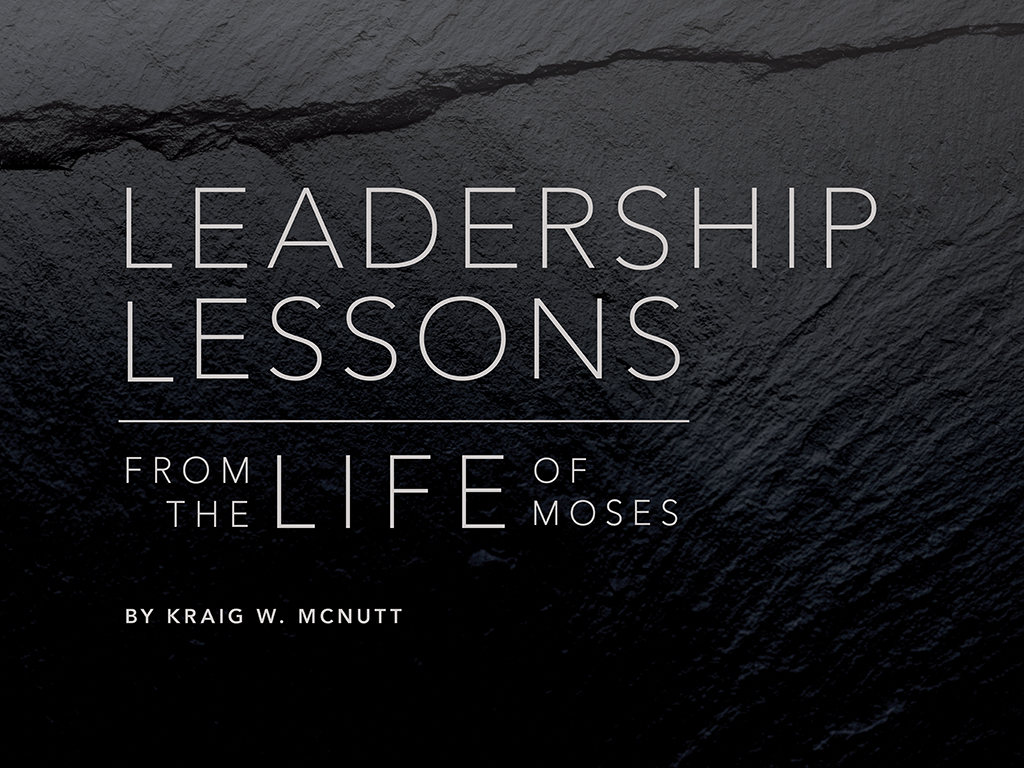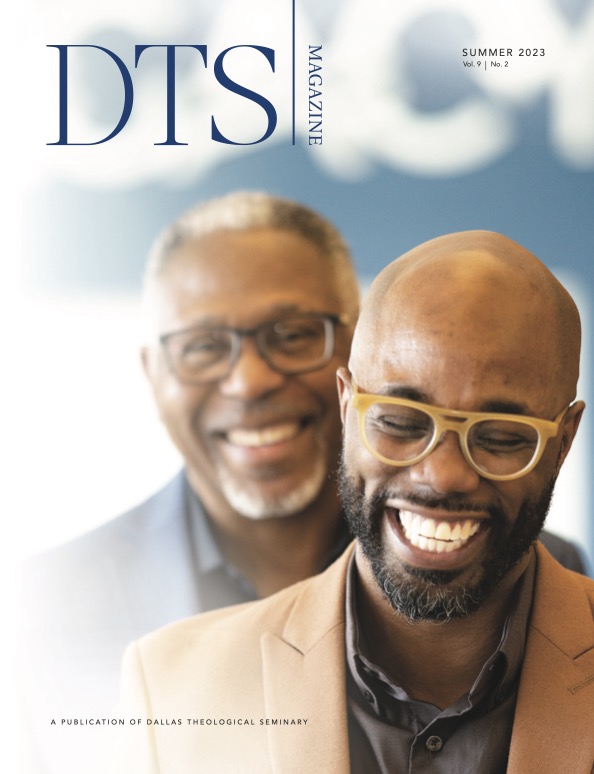Leadership Lessons From the Life of Moses

As a young seminarian in the mid-1980s, I carried pain from my family’s past. The origin story on my father’s side included a long list of transgressions: violence, alcoholism, murder, drug abuse, and marital infidelity. So, a few years before starting seminary, I changed my last name to my stepfather’s name; I didn’t want to explain my biological family’s story. The shame was just too great.
As I began my preparation for vocational church ministry, thoughts such as “God can never use me greatly” plagued my conscience. Was I cursed by God? Would I have to suffer for my father’s sins? My grandfather’s? I feared that God would punish me because of this past. Exodus 34:7 echoed in my mind: “[God] by no means leaves the guilty unpunished, responding to the transgression of fathers by dealing with children and children’s children, to the third and fourth generation.”
I remember sitting in chapel at Grace Seminary one fall morning in 1987, listening to a message by the great Scottish theologian Leon Morris. After his message, I walked right up to the podium to ask him about that passage in Exodus 34. Did my past disqualify me from ministry? I told Dr. Morris my story and asked, “Am I going to have to pay for the sins of my father and grandfather? Am I disqualified from being useful to God?”
The gentle theologian replied in his Scottish brogue, “Tell me, my boy, are you blood-bought?” I excitedly replied, “Yes, sir. I gave my life to Christ about ten years ago.” His next words brought instant shalom to my soul: “Well, lad, if you’re blood-bought, I believe that settles it. You can live your life in peace!”
FREEDOM FROM THE PAST
With this newfound peace, I began studying the life of Moses. How did God use Moses so powerfully, despite Moses’s checkered past? I discovered three powerful leadership lessons from the life of Moses: first, our past does not disqualify us from God’s purposes; second, present perplexities should not cause us to remain stuck; and third, future fears shouldn’t paralyze us from God’s calling.
Though we may be pained by our past—our own shortcomings and transgressions or our family’s history and lineage—our past does not disqualify us from being used by God. God can use our past as the forge from which He crafts a refined character. A spiritual constitution properly attuned can accomplish just what He desires. Our past should make us grateful and keep us humbly waiting on God’s leading.
Focusing on our past weaknesses will make us perplexed in our present. Our present can feel like a wilderness. After fleeing Egypt, Moses spent about four decades in Midian tending sheep, bewildered about his calling. Moses must have endured utter perplexity, day in and day out, living a life dominated by confusion. In this situation, we can feel forgotten and abandoned by God. But even when we feel that we’re in the wilderness and daily life seems barely tolerable, God meets us in the everydayness of life. He can manifest Himself in something as simple as a little bush—just as He did for Moses. He’s waiting to engage us anew with His presence. His presence will transform our present.
We might not see how God will use us, but we don’t have to be paralyzed about our future. God sees us as beautiful even from birth. Acts 7:20 says, “At that time Moses was born, and he was beautiful to God.” God’s calling upon Moses’s life did not begin at the burning bush; that was when God revealed Himself. No, God’s calling upon Moses started at birth—and the same is true for you and me! We don’t have to be paralyzed about our future, no matter the pain of our past or the perplexity of our present. We can be “sure of this very thing, that the one who began a good work in you will perfect it until the day of Christ Jesus” (Phil 1:6).
YOUR INADEQUACY IS YOUR STRENGTH
Here’s another memory from seminary: After my theology professor gave a lecture on God’s holiness and other attributes, I walked up to him and said, “Prof, after listening to your lecture today, I don’t feel remotely qualified to enter the pastorate or become a church leader.” His reply was simple: “That is what makes you qualified! You don’t feel qualified, and you won’t depend on your own resources. Put your confidence in God’s call and His faithfulness to equip you to do His will.” Our natural tendency is to run and hide from our past—as Moses did for so many years. But God wants us to know He sees us as beautiful from birth. As painful as our past is, it doesn’t have to hold us back from hearing and obeying God’s call upon our life. We don’t have to be pained by our past, perplexed by our present, or paralyzed by our future.
One generation will praise your deeds to another, and tell about your mighty acts. Psalm 145:4
About the Contributors

Kraig W. McNutt
Kraig McNutt is Executive Director of Marketing & Communications for DTS. He studied philosophy at Indiana University (BA) and holds degrees from the University of Kentucky (MSLS) and Grace Theological Seminary (MDiv). He is also an author and historian on the American Civil War.

